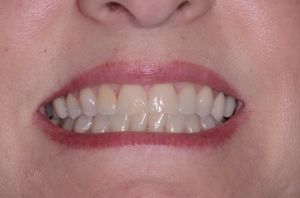
Oral health is an integral part of a person’s general health. Dental cleaning and dental care are not only safe but highly recommended during pregnancy. Lack of routine dental check-ups and the postponement of dental treatment during pregnancy can lead to the risk of dental infections that can affect the health of the mother and baby. For a pregnant person, it is important to consider the physiological changes that take place and how they relate to your mouth.
One of the most frequent oral conditions that happens during pregnancy is plaque accumulation resulting in gingivitis and periodontal disease. While gingivitis usually happens because of poor oral hygiene, in the pregnant person the oral bacteria does not increase or change. During pregnancy, the inflammatory response is highly activated making the response to any bacteria also exaggerated. The most important treatment for periodontal conditions during pregnancy is the maintenance of regular cleaning and encouraging more frequent home care.
Periodontal disease and gum infections have also been linked to adverse events during pregnancy. Preterm birth, low birth weight, and pre-eclampsia are associated with periodontal disease. A direct link and exact cause have not been established but evidence has demonstrated that these negative events are more common in individuals with untreated periodontal disease.
Changes in the composition of saliva during pregnancy and breastfeeding can temporarily predispose teeth to decay. Acid erosion from nausea, vomiting, and gastric upset can also damage the enamel of your teeth. More frequent eating and changes in eating habits during pregnancy also can supply food to the bacteria and increase the risk of developing cavities. For all these reasons it is important to keep your dental cleanings and follow the recommendations of your dental hygienist and dentist.
Dental work can be performed during pregnancy. Delaying treatment for caries and infection can cause dental emergencies and undo stress on the mother. The second trimester is the best time to plan for any routine and preventative dental work, but emergencies can be addressed at any time. The most common dental anesthetic used is Lidocaine with 1:100K Epinephrine which has a class B FDA categorization and poses no danger. Additionally, advances in dental x-rays with digital sensors make it safe to take them during pregnancy. With abdominal and thyroid shielding, they are considered safe at any stage of pregnancy.
If you are pregnant or planning to become pregnant it is important to have a comprehensive exam with a dentist to ensure that your oral health is optimum and that you continue your regular maintenance visits with the hygienist. If you have any questions, please contact our Gilbert Arizona dental office.



